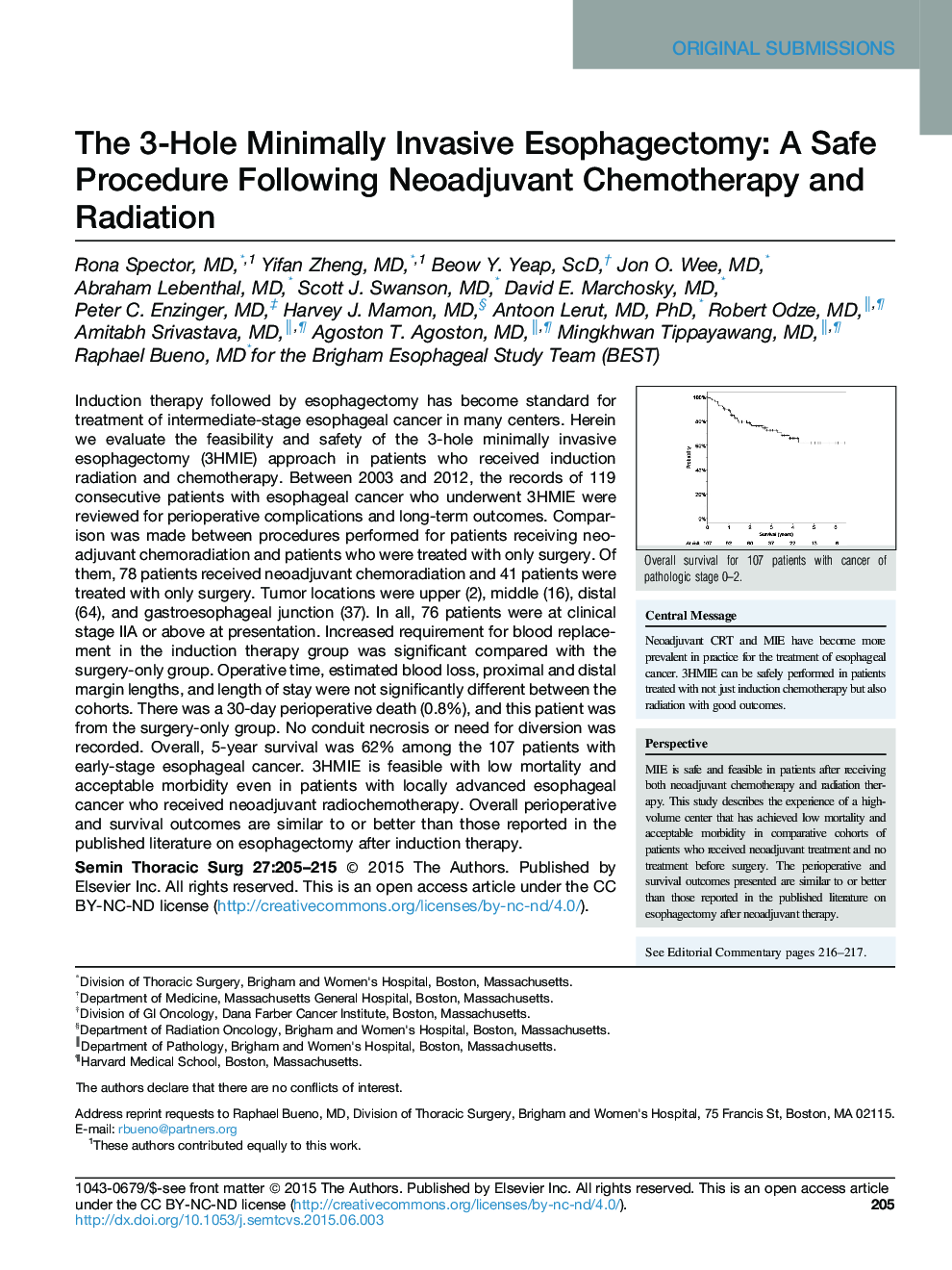| Article ID | Journal | Published Year | Pages | File Type |
|---|---|---|---|---|
| 6000230 | Seminars in Thoracic and Cardiovascular Surgery | 2015 | 11 Pages |
Abstract
Induction therapy followed by esophagectomy has become standard for treatment of intermediate-stage esophageal cancer in many centers. Herein we evaluate the feasibility and safety of the 3-hole minimally invasive esophagectomy (3HMIE) approach in patients who received induction radiation and chemotherapy. Between 2003 and 2012, the records of 119 consecutive patients with esophageal cancer who underwent 3HMIE were reviewed for perioperative complications and long-term outcomes. Comparison was made between procedures performed for patients receiving neoadjuvant chemoradiation and patients who were treated with only surgery. Of them, 78 patients received neoadjuvant chemoradiation and 41 patients were treated with only surgery. Tumor locations were upper (2), middle (16), distal (64), and gastroesophageal junction (37). In all, 76 patients were at clinical stage IIA or above at presentation. Increased requirement for blood replacement in the induction therapy group was significant compared with the surgery-only group. Operative time, estimated blood loss, proximal and distal margin lengths, and length of stay were not significantly different between the cohorts. There was a 30-day perioperative death (0.8%), and this patient was from the surgery-only group. No conduit necrosis or need for diversion was recorded. Overall, 5-year survival was 62% among the 107 patients with early-stage esophageal cancer. 3HMIE is feasible with low mortality and acceptable morbidity even in patients with locally advanced esophageal cancer who received neoadjuvant radiochemotherapy. Overall perioperative and survival outcomes are similar to or better than those reported in the published literature on esophagectomy after induction therapy.
Related Topics
Health Sciences
Medicine and Dentistry
Cardiology and Cardiovascular Medicine
Authors
Rona MD, Yifan MD, Beow Y. ScD, Jon O. MD, Abraham MD, Scott J. MD, David E. MD, Peter C. MD, Harvey J. MD, Antoon MD, PhD, Robert MD, Amitabh MD, Agoston T. MD, Mingkhwan MD, Raphael MD,
